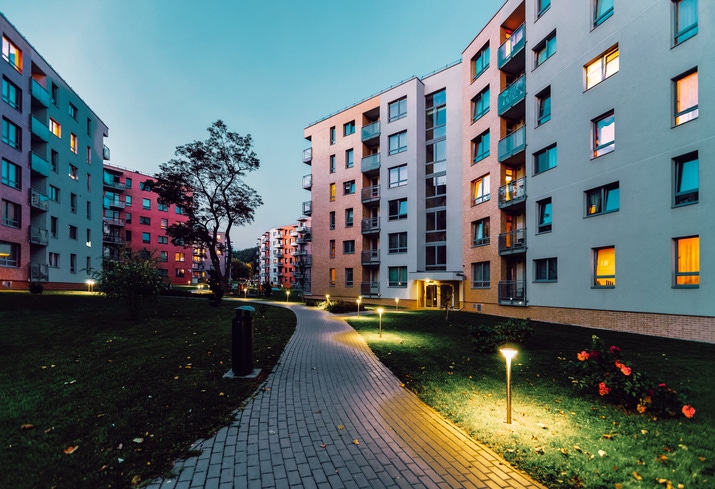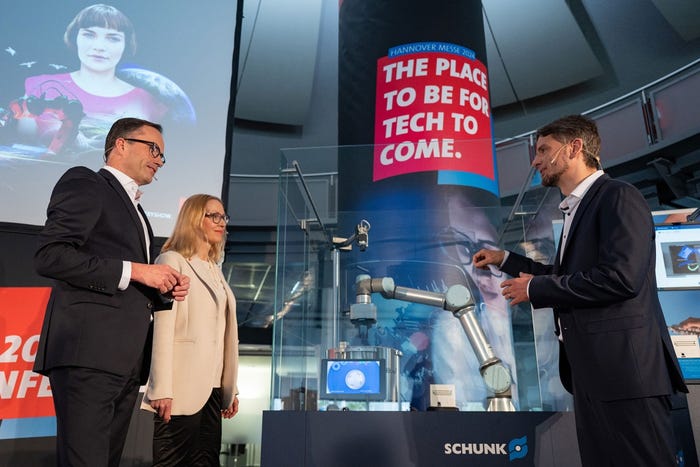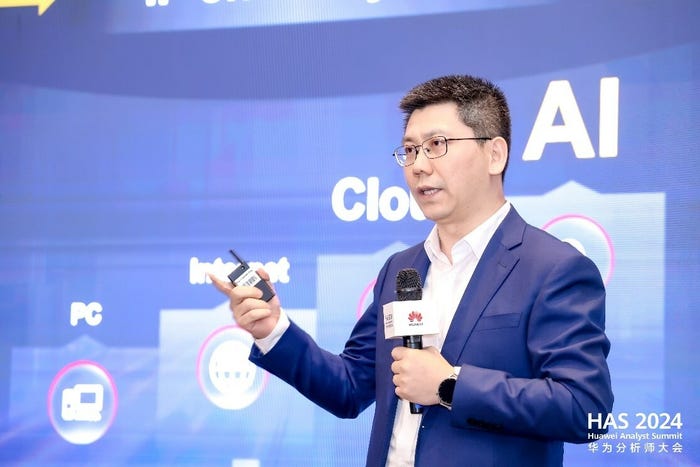The smart home is hot, thanks in part to the explosion in popularity of smart speakers. But what about the smart apartment?
November 7, 2019

“Alexa, my sink is leaking.”
To date, the voice assistant wouldn’t be able to come up with a helpful response to such a query. That could change for some users, who could have such a sentence trigger a maintenance call. Last month, the company SmartRent received a strategic investment from the Amazon Alexa Fund that will enable it to drive more in-depth integration of its smart home automation platform for property managers and renters into the Amazon ecosystem. In addition to integration with voice commands, the funding also will enable SmartRent’s system to interact with Ring cameras. “For instance, if the UPS guy is there, you can unlock the door, so he can put the package in the apartment instead of leaving it at the front office,” said Lucas Haldeman, SmartRent’s founder and chief executive officer.
Having raised a total of $41.5 million to date, SmartRent has a focus extending beyond smart speakers. “We’re super excited to be working with Amazon, but our whole basis from the beginning has been to be an open platform,” Haldeman said. The company’s technology is compatible with Google Home and Siri from Apple. The SmartRent platform also enables property managers, for example, to control locks, lights and thermostats in empty apartments and common areas in smart apartment complexes and other types of rental properties.
The genesis for the company traces back to Haldeman’s experience working in leadership roles in property management. As smart home technology began to proliferate, Haldeman wondered why there wasn’t more of a concerted push to use IoT technology to help make property management more efficient. If there can be a smart home, why not a smart apartment?
[IoT World is North America’s largest IoT event where strategists, technologists and implementers connect, putting IoT, AI, 5G and Edge into action across industry verticals. Book your ticket now.]
One daunting challenge is the sheer number and variety of connected devices involved. While an ambitious consumer might have, say, 100 smart devices, an owner of multiple rental multifamily properties could have tens of thousands.
“So our purpose in life as we started was to be an enterprise software provider to integrate many disparate devices into one platform,” Haldeman said. Those devices could include everything from voice controllers to leak sensors to thermostats and locks. “Our mandate was to be one platform and then also deeply integrate with the property management software that owners use to run their business,” Haldeman said.
SmartRent’s core focus is to help property owners and managers improve their operational efficiency and better protect their assets. “We also have a resident facing app,” Haldeman said. “But we focus a little more on the system side than the consumer side.” Residents living in a SmartRent-supported environment can, of course, procure an Alexa and Google home and integrate with SmartRent software. “But we don’t tend to put [smart speakers] in as part of our base package,” he explained.
One example of where the company’s technology can help property owners streamline operations is access control. “If you go to an apartment community today and look around, there’s usually a guy driving around in a golf cart, taking keys around to people. It’s massively inefficient,” Haldeman said. While some property managers have a system for tracking keys, they often go missing. Contributing to the chaos are the armies of people visiting a typical multifamily community: painters, carpet installers, dog walkers, guests, extended family members and so on. Smart locks can make the process of key management significantly simpler.
Another application is controlling utilities. “There’s a financial as well as an environmental component to this,” Haldeman said. “So with our smart thermostats and our enterprise system, owners don’t have to worry that they’re cooling empty spaces or that someone’s put the thermostat in the gym down to 60 degrees Fahrenheit”
A third application area is asset protection and asset monitoring, with leak detection being a popular use case. “Preventing water damage on a property not only saves millions of dollars a year, but it also improves the resident experience,” Haldeman said. “It’s a very unpleasant experience when the third floor gets a leak, and you’ve done nothing wrong, but you’re on the first floor, and you have water coming through the ceiling.”
When asked about the paranoia IoT devices can sometimes engender, Haldeman stresses it is not the case that the company or its clients are interested in spying on tenants. The company’s employees train clients and residents about how its technology works at in-person events. “We make it very clear to [residents] that your landlord is not spying on you,” he said. But if an apartment has, say, a water leak or a fire, the landlord and other tenants have the right to know if property damage is a possibility. “The owner can learn only about things that would be potentially dangerous or hazardous to the asset,” Haldeman said.
Tenants’ questions about privacy are part of the reason the company doesn’t focus on including voice assistants in its installations. “It’s just psychologically different if I [as a tenant] go to Best Buy, buy an Amazon Alexa, plug it in and set it up,” Haldeman said. “But if I show up and it’s there, I’m suspicious. That is part of why we say: ‘Look, we’re compatible with all these voice controllers.’”
In any case, the real opportunity is providing services that save property owners and managers time and money with IoT technology. “It’s a massive opportunity,” Haldeman said. “Fewer than 1% of apartments in the U.S. and even worldwide are smart apartments. That’s a multi-billion dollar opportunity that’s going to get the attention of a lot of people.”
About the Author(s)
You May Also Like



.png?width=300&auto=webp&quality=80&disable=upscale)


.png?width=300&auto=webp&quality=80&disable=upscale)